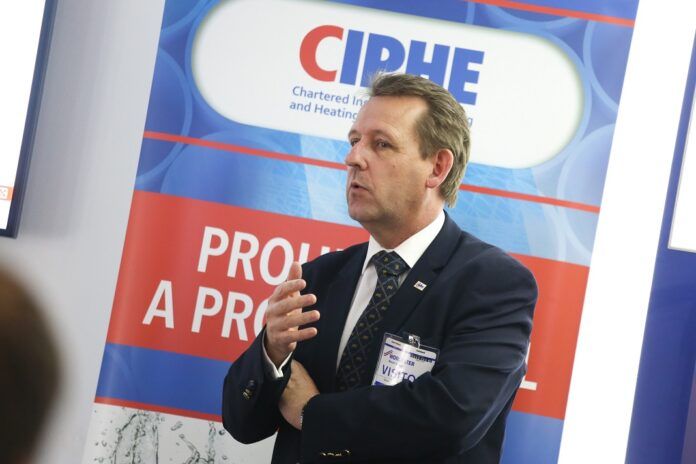
The lack of mandatory qualifications for heat pump installations not covered by the Boiler Upgrade Scheme has reignited the fuel behind the Chartered Institute of Plumbing and Heating Engineering (CIPHE)’s crusade for a focus on quality.
Under the scheme, which enables homeowners to apply for a grant to partially cover the cost of replacing fossil fuel heating systems, engineers installing heat pumps must be MCS certified. However, there is currently no mandatory qualification on top of the minimum NVQ Level 2 qualification, for general heat pump installations completed outside the scheme. CIPHE’s representatives are warning that without this, systems could be environmentally and financially inefficient and even dangerous for system users.
Kevin Wellman, CEO of the CIPHE, said: “Competency is essential. So, the idea there’s no minimum legal standard for all heat pump installations is nonsensical. With proficient installation, heat pumps can provide low-carbon heating which saves money and has a positive impact on the environment. In cases where poor installations are carried out, there could be disastrous ramifications.
“Plus, there may even be an influx of legal claims years down the line. We are all vulnerable if plumbing and heating work is poorly executed and, if plumbing and heating professionals are not appropriately trained and a legal standard put in place, the consequences could be severe.”
In November 2022, the Department for Business, Energy and Industrial Strategy (BEIS) launched a £9.2m energy efficiency training scheme. However, the Scottish Heat in Buildings Strategy document states that there are no specific statutory minimum qualifications required to install zero direct emissions heating systems, or carry out energy efficiency works.
Currently, there are around 1,300 companies certified to install heat pumps, putting the approximate number of qualified heat pump installers at a mere 4,000. According to Nesta, this means the industry must add roughly 5,000 to 7,000 engineers every year from 2025 until 2035 to meet the target of 600,000 heat pump installations per year by 2028.
